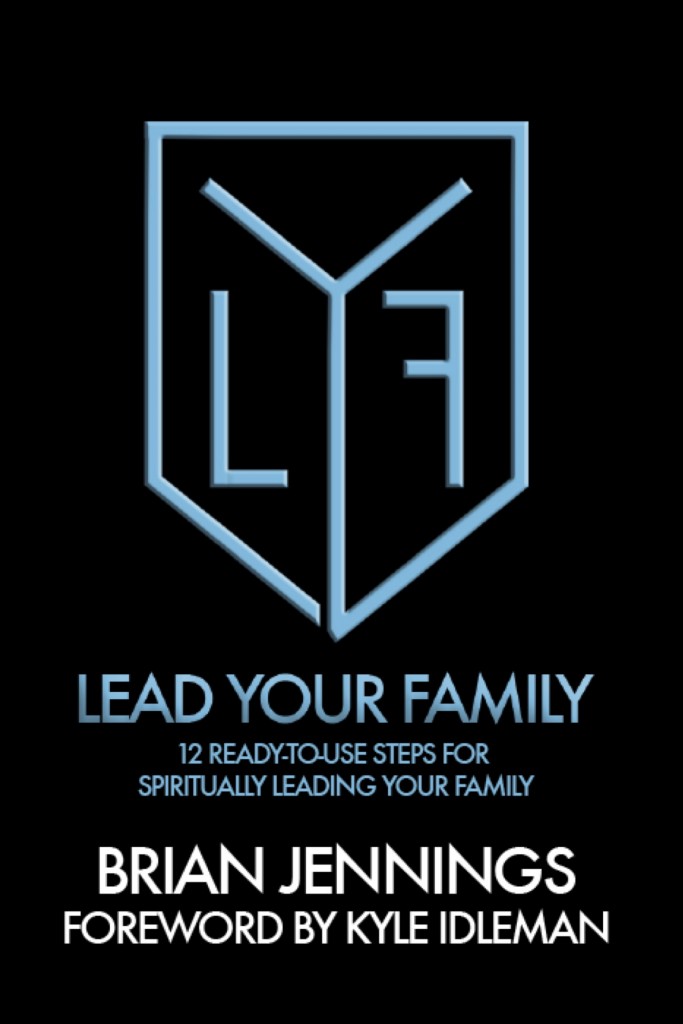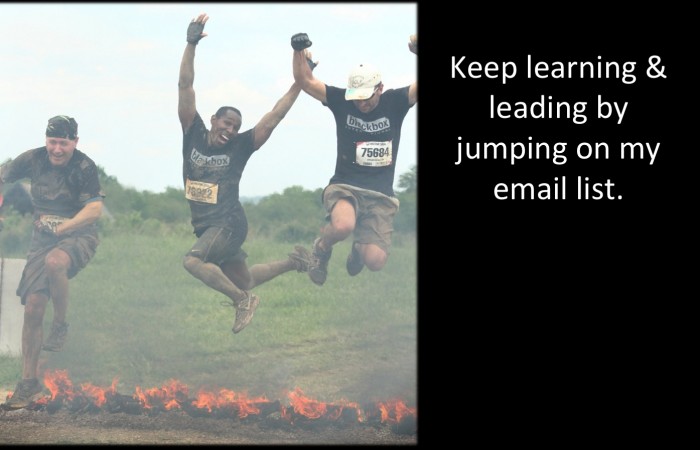Five Ways You Can Help Tulsa
Written by Brian Jennings, Posted in Blog, Your World
In the wake of the Terence Crutcher shooting, Tulsa has been shaken. We’ve collectively experienced a million emotions, we’ve been thrust into the national spotlight and we’ve wrestled with making sense of opposing perspectives. Many caring people have asked how they can help.
I’ve lived in Tulsa for seventeen years, I care deeply about reconciliation, my own household has different ethnic backgrounds and I’ve spent time this past week with faith leaders, police officers and concerned citizens. I think I’ve observed enough to offer a few ways that others can help us.
1. Be empathetic with our hurt.
This week I’ve come face to face with my own frailty. At times I’ve been an emotional mess. Those who’ve cast judgment quickly have only hurt us, but those who’ve written us notes, called to check on us and offered to pray for us have deeply helped. Thank you so much.
Our emotions are raw. We’re hurting. We need some grace.
2. Don’t dismiss the truths of either the specific story or the larger narrative.
The reason our story swamped national headlines is because there’s a larger narrative at play. Some have been quick to dismiss that our nation bears much responsibility for stacking the odds against the African American community. Two-hundred-fifty years of enslavement and one-hundred years of aggressive Jim Crowe discrimination, wrapped in violence, oppression and the myth that skin color makes someone inept, unworthy or less-human, takes its toll. It has embedded seeds of hopelessness and prejudice. All parties must now wage a war against what’s been ingrained. I know, it’s not all your fault. It’s not any single person’s fault, which is partly why we haven’t solved the issue.
Snippy rhetoric that refuses to acknowledge the larger narrative is both hurtful and harmful. This week has been full of knee-jerk reactions and ultra-defensive arguments. The command from the book of James, “Be quick to listen, slow to speak and slow to become angry,” has been broken too often. For those of us trying to bring about reconciliation, if you’re refusing to acknowledge a larger narrative, you’re killing us. If you dismiss the very real troubles of so many people, you’ll dump gas on the cultural fire. Those opposed to your perspective will lament to us, “See, they don’t even care enough to stick their heads out of their bubble,” and we’ll be left trying to convince them that some people actually do care.
At the same time, the passion from some to change grander narratives has led to sweeping claims about the facts of this actual case. Some of these claims are outright falsehoods, gross exaggerations or biased presumptions about things in which we still do not yet know. While trying to speak into something bigger, they’ve actually done harm to our city. These are real lives we’re talking about. They deserve real justice. The truth matters. We don’t want to base our “cause” on a version of the story that doesn’t honor truth. Too many headlines and stories have been written that dishonor truth. I know that some of the intentions are good, and I know that we all have to allow some room for grace so that we can have a dialogue, but for those of us trying to bring about reconciliation, the lack of concern for truth is killing us. If you dishonor the truth, those with an opposing perspective will use your words against us. They’ll say, “See, they are telling lies,” and we’ll be left trying to uselessly convince them that you didn’t mean any harm.
Words from varied perspectives have both landed blows. We have two problems: Too many people are intellectually under-invested and emotionally over-invested.
I’ve been surprised by how deeply some of these words have hurt. Part of my anger has come from outsiders who think they are speaking for us, but they are actually scaring us. We fear there’s only a tiny shred of difference between “causing hurt” and “inciting violence.” Please don’t make the messy, fragile, painstaking work of reconciliation harder than it is already is.
3. Stop idolizing and demonizing.
Attorneys may work to paint the rosiest possible picture of their client, while smearing the reputation of the other. Editorials and blogs often adopt this same strategy, and all of us are prone to follow along.
If you don’t believe me, consider how many Bernie Sanders’ supporters once demonized Hillary Clinton, but now they campaign for her. Consider how many Republicans once demonized Trump, but now they see a halo over his head. We don’t like nuance. We want a good guy and a bad guy – an angel and a demon.
The media plays the game so well. They broadcast the most extremist, inflammatory words they can find, and we take the bait. The more we demonize others, the more ratings soar.
Jesus told us that if your right hand causes you to sin, you should cut it off, because it would be better for one part of your body to go to hell than your whole body (Matthew 5:29). And I’ll add, “If your right-wing media causes you to sin, gouge it out. It’s better for your radio to go to hell than your whole body. And if your left-wing media causes you to sin, toss it out. It’s better for your TV to go to hell than your whole body.”
I’ve heard many people say, “I watch the news and it just makes me so mad.” If inhaling the news causes you to spit fire, just quit the news. Our world would find it useful for you to be highly informed, but what we really need is for you to not be mad. Please.
Anne Lamott wrote, “You can safely assume that you’ve created God in your own image when it turns out that God hates all the same people you do.” Our tendency to demonize our opponents is a theological, relational and moral disaster. Jesus told us to love. We can pursue legal justice and personal love at the same time. Help us get there.
4. Love someone different than you.
I’m an idealist. I chase big dreams, and I want to do things that change the world. But sometimes I forget to follow the simple action of loving my neighbor. We tend to get caught up in big news stories, and we want to change the headline, but maybe God is just telling us to not forget to love somebody today.
Dr. Chris DeWelt taught me that spreading God’s love requires us to think of a waffle. Spreading syrup on a pancake is easy. Pour it in the middle and it will run all over. But if you want syrup in every little pocket of the waffle, you have to make it cross barriers and walls.
It’s easier to love same-thinking, same-living, same-looking people, but loving those different than us requires intentionality and effort. We’ll need to cross some barriers and climb some walls. If we do, we’ll have a sweet reward.
A few days after the shooting, the word “encourage” came to mind. I drove to the church of an African American preacher friend of mine. His church is near where the shooting occurred. I figured that some of his church members knew Mr. Crutcher, so it was probably a very difficult week for them. However, my friend wasn’t there. I thought of driving home, but I felt even more compelled to find someone to love. I saw another church building down the street, so I decided to introduce myself. My knocks were answered by the pastor of the church, who cautiously opened the door. Their church van had been vandalized the night before. She’d come to check on things, and had then decided to stay and pray for the people of their church. I told her that I’d come to offer encouragement and prayer. Faye Martinez is different than me in many ways, but by the time I left, she was my friend. Two days later, I joined her and others to pray for the city.
The next day, I was eating lunch at Quizno’s when a cop walked in. The word “pay” came to mind. I cut in line to pay for his meal, and then I assured him of our church’s care for him, our law officers and our city.
If you have an opportunity to contribute to the national dialogue today, take it. But if you don’t, find someone to love. Sweeten the day of someone different than you, and if enough of us do this over and over again, perhaps we’ll accomplish more than we ever thought we could.
5. Pray.
CNN’s article credited the peaceful Tulsa protests to the prayer efforts of faith leaders in our community. But guess what? CNN doesn’t even know the half of it. Yes, the big prayer events for Tulsa have been important, but so have the multitude of smaller gatherings around town. These prayer gatherings weren’t big enough to make the news, but they realigned our hearts with God’s, allowed us to do something infinitely powerful and bonded broken people together.
You can join us in focused prayer. Last Thursday, I joined a group of church leaders, mostly from neighborhoods near the shooting. The focus of their prayers may serve as a helpful guide for you:
- Healing and comfort for the Crutcher and Shelby families
- The system and those involved to be just and honest
- Peace in the city, and no more violence as a result of the tragedy
- The church to be ministers of reconciliation (removing walls of hostility so that people can be drawn into unity with God and each other)
- Wisdom for how to promote healthy changes
- Trust in God during times of suffering
Thank you for caring for Tulsa. We need your commitment to love, truth and grace. We appreciate you so much.
-Brian Jennings lives with Beth and their four children in Tulsa, where he serves a church committed to reconciliation, Highland Park Christian Church. You can find his blog and book here.







